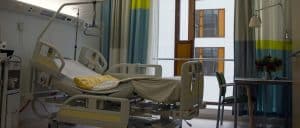The work completed by maintenance and facilities staff can often go unnoticed. Since their jobs involve keeping everything in working order, we tend to only take note when a piece of equipment or system malfunctions. However, a proactive maintenance program decreases the likelihood of unplanned equipment downtime. This essentially means that when maintenance and facilities staff are doing their jobs well, they typically aren’t being recognized. That’s why it’s important to keep in mind the work maintenance professionals complete on a day-to-day basis and express gratitude whenever possible. We’ve outlined four reasons to be thankful for maintenance professionals below, although there are many others.
They enable our future generations to flourish.
School is a place where parents send their kids to learn. But before children can learn, they need essentials such as adequate shelter, temperature-controlled classrooms, food and water, access to working restrooms, etc. Many different types of equipment play a role in providing these essentials—HVAC units, hot water heaters, plumbing systems, toilets, sinks, electrical systems, ovens, dishwashers and more. The list goes on and on. It is the job of maintenance personnel to keep all these systems in working order so that children’s basic needs can be met in a school environment. It is only then that administrators and teachers can focus on their primary objectives of educating students. Without maintenance, school systems are simply not sustainable.
They allow us to get from point A to point B.
Although many individuals would like to curl up under blankets and never leave the house during these colder months of the year, it’s not feasible for most. People have to go to work, school, grocery stores, restaurants, doctor’s offices and many other places. In order to travel from one place to another, roads must kept in drivable conditions. Potholes must be repaired, old asphalt replaced, bridges and curbs maintained, snow and ice removed, traffic lights in working order, road signs visible, etc. Public transportation systems, such as buses, must be serviced with oil changes, tire replacements and more. There are a wealth of individuals involved in maintaining the equipment and infrastructure necessary for people to travel.
They enable the production of essential products.
There are a number of products we rely on each day. For example, many of us reach for our smartphones to check the weather, scan news articles or read emails before even getting out of bed. What we probably don’t think about is the process of how the devices in our hands are actually created. Manufacturing plants produce materials, like screens and casing, used in smartphones. Parts are assembled to create the finished products. Products are labeled, packaged and shipped. A variety of specialized equipment and machinery are essential to complete these processes, which are sustained by a robust maintenance department. Staff must monitor all equipment, complete work orders, schedule preventive maintenance tasks, keep track of repairs and warranties, and much more. Without maintenance work that goes on behind the scenes, manufacturing and packaging plants wouldn’t be able to meet production goals. Keeping equipment running smoothly is key to providing consumers with the products they need.
They sustain facilities necessary to keep us healthy.
Hospitals and healthcare facilities rely on a number of critical systems and special equipment to provide proper care for patients. Facilities and maintenance staff work day and night to ensure systems are in working order. From cleaning floors and changing out light bulbs to replacing an oxygen tank, maintenance personnel are there to help ensure patients receive the care needed when they visit the hospital. On top of keeping everything in working condition, there are ample regulations to adhere to. Facilities and equipment must be up to code in order to prevent injuries as well as the spread of infectious diseases. There are numerous other precautions and extra measures to take after the COVID pandemic. Complying with regulations involves keeping detailed records, following standard opening procedures (SOPs) and providing reports necessary for inspections. The amount of work it takes to provide a patient with a satisfactory stay at a healthcare facility is considerable, and something to keep in mind when visiting.
As a provider of maintenance management software, DPSI acknowledges and appreciates facilities and maintenance professionals. Our team understands the hard work these individuals carry out on a daily basis. We encourage everyone to take note of the person working outside in below-freezing temperatures to clear snow and ice from a building parking lot. Or the person who wakes up at 3:00 a.m. to repair the traffic light at an otherwise busy intersection. Remember the sacrifices that these folks make to ensure your day goes as smoothly as possible, and thank them whenever you can.




